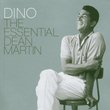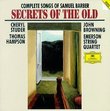| All Artists: Peter Kater Title: 10 Questions for the Dalai Lama [Original Score] Members Wishing: 1 Total Copies: 0 Label: Silver Wave Original Release Date: 1/1/2006 Re-Release Date: 8/1/2006 Album Type: Soundtrack Genres: New Age, Pop, Soundtracks Styles: Meditation, Adult Contemporary, Adult Alternative Number of Discs: 1 SwapaCD Credits: 1 UPC: 021585094529 |
Search - Peter Kater :: 10 Questions for the Dalai Lama [Original Score]
![10 Questions for the Dalai Lama [Original Score]](https://nationalbookswap.com/cd//l/50/8750/848750.jpg) | Peter Kater 10 Questions for the Dalai Lama [Original Score] Genres: New Age, Pop, Soundtracks
10 Questions for the Dalai Lama Original Score by Peter Kater Music from the Motion Picture Directed by Rick Ray The experience of listening to the music on this soundtrack, by multi Grammy nominated pianist/composer Pete... more » |
Larger Image |
CD DetailsSynopsis
Album Description 10 Questions for the Dalai Lama Original Score by Peter Kater Music from the Motion Picture Directed by Rick Ray The experience of listening to the music on this soundtrack, by multi Grammy nominated pianist/composer Peter Kater, is best described as sublime. With guest appearances by chanting Tibetan monk and teacher Tulku Orgyen, Tibetan flutist Nawang Khechog, and Native American flutist R. Carlos Nakai, the listener is beckoned to step off the plateau of worldly affairs into the realm of self-realization and divine grace. The Tibetan bowls, cello, piano, strings, chants and flutes add to the music?s sweet spiritual seduction and give the listener the sense that the questions, once so seemingly urgent and consuming, have already been answered and dissolved by beautiful strains of flowing harmony and musical bliss. Similarly Requested CDs
|
CD ReviewsBeautiful fusion Sasha Daucus | Doniphan, MO USA | 09/25/2006 (4 out of 5 stars) "The way Tibetan chanting, Native American flute music (by Carlos Nakai) and a variety of eastern and western instruments (Tibetan bowls, cello, piano, strings) is smooth, and beautiful. There is no strain in how they fit together, just creating wonderful music that is transporting, touching and very interesting." Understated, thoughtful, delicate, and intimate J. Ross | Roseburg, OR USA | 05/19/2007 (4 out of 5 stars) "Playing Time - 61:30 -- Zen Master Fa-Yen once asked, "If you meet a wise man and you do not say anything to him nor keep silence, how would you question him?" It's certainly something to ponder if one were to be granted an hour-long audience with the Dalai Lama. I have not seen the 85-minute film, "10 Questions for the Dalai Lama," directed by Rick Ray, but I imagine it as an inspiring tale of peace, harmony, kindness, compassion and wisdom. In 2001, Ray was allowed to interview the exiled Tibetan leader in Dharamsala. To accompany the scenic travelogue, multi-Grammy nominated pianist/composer Peter Kater was enlisted to complement the film's images with a new age music score.
Born in Germany, Peter Kater has lived in New Jersey, Colorado and California since his move to the U.S. at age four. Emphasizing improvisation and spontaneity, Kater released his first album of piano solos ("Spirit") in 1983. That project and his subsequent forty albums with jazz, world and Native American flavorings have opened many opportunistic doors for him in the realm of scoring for theater and film. Kater's piano and synthesizer are nicely blended with some haunting vocal chanting, flute, saxophone, and cello. Worldy musical sensibilities are fused when Tibetans Tulku Orgyen and Nawang Khechog join Native American flutist R. Carlos Nakai and others including Richard Hardy, Shawn Darius, Beth Fitchet Wood, David Darling, and Mark Miller. The vocals imparted to "Buddha Search" and "Seeking the Dalai Lama" impart an adventurer's sense of discovery. Three additional pieces with Nawang Khechog's chanting (A Fresh Wind, Ocean of Long Life, Call of Compassion) are particularly enticing. The Dalai Lama has stated "I am no one special ... I am just a simple human being." In a similar and corresponding way, the music on this album is at times understated, thoughtful, delicate, and intimate. However, it is special in that Kater carefully cultivates musical expressions to create certain moods, emotions, sentiments and feelings. Without also seeing the movie to put the eleven compositions into context, I am left pondering the wisdom of enlightenment in the music itself. Such wisdom is inherent is each of us, but many fail to recognize it. Thus, one should experience this score with the essence of an open mind and a goal of seeking freedom and liberation. The journey is certainly not linear, and the human consciousness created by Kater's music is both a spiritual allegory and insightful metaphor. The 13-minute "Call of Compassion" may be the best example of how to free oneself from ego-illusion, awaken inner wisdom, and meditate about roots of justice, sympathy, impartial love, humanity, mercy .... real measures of all things. I don't believe that Kater would want this work to result in simple declarations about his musical greatness and wisdom. For, as Zen Master Gempo Yamamoto so profoundly stated, "If you are seen as great or wise by others, you have not yet reached maturity." Peter Kater is a journeyman seeker on that path. (Joe Ross, Roseburg, OR.) " |

 Track Listings (11) - Disc #1
Track Listings (11) - Disc #1





